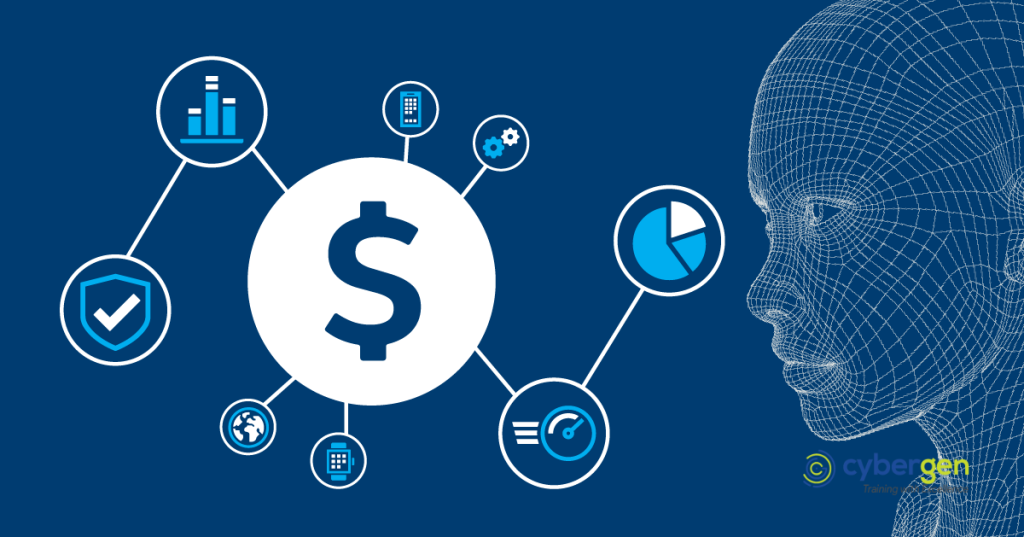When 34 years old Paul Komba, a data analyst at a leading Tanzanian bank, received an internal email about mandatory AI training, he paused. Until then, artificial intelligence felt like a buzzword far removed from his daily routine. “I thought it was something only tech companies or Silicon Valley startups used,” he recalls with a smile. But everything changed when his team started seeing results in real time. Today, as East African banks grapple with rising digital fraud, that training is transforming frontline defense.
Across East Africa, artificial intelligence is no longer confined to innovation hubs or university labs. It has become a powerful weapon against financial fraud, safeguarding billions in mobile money and digital transactions. This transformation is redefining how banks, fintechs and even smaller microfinance institutions operate.
A digital gold rush meets its shadows
East Africa has been hailed as a global leader in mobile money innovation. Kenya’s M-Pesa revolutionized banking for the unbanked. Tanzania followed suit, with mobile money transactions crossing 10 trillion TZS ($4 billion) monthly in early 2025, according to the Tanzania Communications Regulatory Authority.
But this digital gold rush has its shadows. Fraudsters exploit gaps in fragmented data systems, real time monitoring limitations and inconsistent regional regulations. Last year alone, East African banks reported a 30% rise in digital fraud attempts, targeting mobile wallets, online banking and cross border transfers.

The AI counterattack: real stories from the frontline
“Before AI, we relied on rules based systems,” explains Komba. “They flagged only what they were programmed to see. Fraudsters knew how to bypass them.”
That changed when his bank adopted an AI powered detection system trained through specialized AI training in Tanzania. The program combined machine learning, data analytics, and cybersecurity strategies to equip staff with skills to supervise these advanced tools effectively.
“I remember when a transaction worth over 500 million TZS was flagged,” says Komba. “The AI model detected an anomaly pattern humans wouldn’t have noticed.” This incident was a turning point for Komba. For him, AI is no longer a distant concept. It is an invisible partner 24/7 to secure customer trust.
How AI detects fraud differently
- Unsupervised learning: unlike traditional systems needing predefined rules, AI learns transaction patterns on its own and identifies outliers automatically without requiring constant human input.
- Real time risk scoring: every transaction receives a dynamic fraud probability score and alerts instantly analysts for investigation.
- Adaptive models: AI evolves continuously as new data arrives with new data which allows it to stay ahead of rapidly changing fraud tactics.
At I&M Group, which operates across Kenya, Tanzania, Uganda, Rwanda, and Mauritius, implementing ThetaRay’s AI system reduced false positives and exposed previously undetected laundering operations, according to iAfrica. Such technology is also boosting the digital economy by giving rise to new career paths in data analytics and cybersecurity across the region.
The hidden heroes: why cybersecurity training in Dar es Salaam matters?
While AI automates detection, human expertise remains critical. Banks in Tanzania are ramping up cybersecurity training in Dar es Salaam to equip analysts, risk officers and IT teams with:
- Skills to interpret AI alerts accurately.
- Knowledge of fraudsters’ evolving strategies.
- Confidence to act swiftly when AI systems flag suspicious activities.
Aisha Mwinyi, a cybersecurity officer at a Dar es Salaam based fintech, remembers her initial doubts about AI replacing human jobs. After completing her cybersecurity certification, which included modules on AI driven fraud detection, her perspective shifted entirely.
“AI doesn’t replace us. It empowers us,” Aisha reflects. “We now understand how models identify fraud patterns and where human judgment remains essential.” She believes more women should enter AI and cybersecurity training programs to bridge the gender gap in tech roles across Tanzania. Her story mirrors a broader shift in the region as cybersecurity training in Dar es Salaam becomes a core strategy to strengthen financial integrity.

From banks to startups: a ripple effect
The adoption of AI and cybersecurity training is not confined to banks. Fintech startups, mobile money operators and even microfinance institutions are investing in these tools and skills.
According to Tech Safari Africa, Tanzanian fintech startups raised $148 million in Q1 2025, with over 30% channeled into cybersecurity and AI integration to ensure platform integrity. This shows growing investor confidence in startups that prioritize customer safety.
Further, some startups are partnering directly with training institutions offering AI training in Tanzania, enabling even junior analysts to gain certification and contribute meaningfully to product security and design.
Experts predict that by 2027, AI and cybersecurity roles will be among the top five fastest growing jobs in Tanzania and will, thus, create new opportunities for youth employment.
Voices from the Cybergen training room
During a recent AI training session held by cybergen in Dar es Salaam, participants shared their motivations:
- John, 27, fintech developer: “Understanding AI makes my coding smarter and security focused.”
- Jiten, 42, bank risk manager: “AI is the future. Learning it now secures my job and my customers.”
- Margaret, 30, data analyst: “Fraud detection isn’t abstract anymore; it’s in the data patterns we analyze daily.”
For many, this training also boosts confidence to propose new digital solutions within their teams. Their reflections illustrate why AI training is gaining momentum across industries; it is no longer optional but essential for relevance in East Africa’s digital economy.
Challenges alongside progress
Despite AI’s promise, hurdles remain:
- Data privacy concerns: AI models require vast transaction datasets, raising questions about customer data protection under Tanzanian and EAC regulations.
- Bias in models: if training data is limited or skewed, AI may overlook unconventional fraud tactics.
- Skills gaps: while AI training in Tanzania is expanding, there remains a shortage of advanced practitioners to build and maintain models locally.
Addressing these challenges requires strategic collaboration between banks, training institutes and government bodies, in order to address these gaps to ensure ethical, inclusive and effective AI deployment.

Looking ahead: AI + human intelligence
Across East Africa, regulators are exploring guidelines for ethical AI use in banking. Some propose regional data sharing frameworks to bolster fraud detection without breaching privacy laws.
Meanwhile, banks continue expanding their training programs to ensure staff are not left behind in the AI transformation.
For Paul Komba, the impact is clear. “AI training has changed how we see data,” he says. “Instead of swimming in numbers blindly, we spot threats before they drown us.” And for him, this is just the beginning.
Is your organization ready?
East Africa’s digital future depends on secure and resilient systems. AI training and cybersecurity training in Dar es Salaam are emerging as the dual engines driving this protection.
As fraud tactics evolve, is your organization empowering its teams with AI skills to keep your customers safe?

